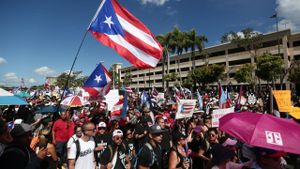President Donald Trump took significant steps Thursday by signing an executive order to declassify government records related to the assassinations of President John F. Kennedy, Senator Robert F. Kennedy, and civil rights leader Martin Luther King Jr. This unprecedented move, described by Trump as something many people have been waiting for "for years, for decades," aims to bring transparency to events shrouded in secrecy for more than fifty years.
With the pen strokes echoing through the Oval Office, Trump remarked, "That’s a big one," indicating the weight of the executive order he was about to sign. "Everything will be revealed," he added, fostering expectations among researchers and conspiracy theorists alike, who have long sought the truth behind these high-profile assassinations.
The order came with specific instructions for the Director of National Intelligence and the Attorney General to collaborate with the White House. Within 15 days, they are to present plans for the full and complete release of records relating to JFK's assassination, with records for Robert F. Kennedy and King to be presented within 45 days. Trump emphasized the importance of releasing these records: "Their families and the American people deserve transparency and truth. It is in the national interest to finally release all records related to these assassinations without delay," reflecting the growing public demand for accountability.
This move aligns with the findings of the President John F. Kennedy Assassination Records Collection Act of 1992, which mandated all related records to be publicly disclosed by October 26, 2017, barring any national security concerns. Despite significant releases during Trump's presidency, many files still remained classified, prompting Trump’s latest push for transparency.
While Trump’s executive order has been hailed as progress, notable skepticism remains. Jack Schlossberg, JFK's grandson, criticized the executive action, describing it as “using JFK as a political prop". He insists the reality of JFK’s assassination was tragic and complex, noting ominously, "there’s nothing heroic about it.” Schlossberg also expressed concerns about the potential political motivations behind the order, arguing it reduces significant historical events to mere spectacle.
The assassinations themselves remain powerful symbols of loss and tragedy in American history. Kennedy was killed on November 22, 1963, shot by Lee Harvey Oswald, a figure whose connections to the events following his death continue to fuel conspiracy theories. Robert F. Kennedy was assassinated on June 5, 1968, shortly after delivering victory remarks following the California primary. Martin Luther King Jr., another iconic figure of the civil rights movement, was assassinated on April 4, 1968, leading to nationwide protests and unrest.
Many of the files related to these events were initially classified, and their delayed release has kept the homegrown conspiracy theories alive. Disclosures over the years, particularly the nearly 3,000 files released during Trump’s earlier term and the 13,000 documents disclosed during Biden's administration, spurred interest yet left many questions unanswered due to redactions.
Robert F. Kennedy Jr., son of RFK, praised Trump’s latest order as fostering much-needed transparency within the government, reiterably emphasizing truth to the American people. He remarked, "I think it's a great move, because they need to have more transparency in our government, and he’s keeping his promise to have the government tell the truth to the American people about everything." His endorsement signals the potential for bipartisan agreement over the desire for disclosure, yet it raises questions about whether such revelations will fulfill the expectations set by the executive order.
Despite the anticipation surrounding upcoming releases, experts caution against expecting bombshell revelations or conclusive material capable of settling many of these long-running conspiracy theories. Larry Sabato, director of the University of Virginia Center for Politics, noted, "There’s always the possibility... but odds are you won’t find" anything majorly impactful. This sentiment reflects the frustration felt by many involved in historical research, yet scholars persevere, hopeful for clues about the undercurrents of those tumultuous times.
Transparent governance and the right to access information, especially concerning historical traumas such as these, remain at the heart of this complicated narrative. While Trump’s executive order sought to assure the public, questions linger. The potential for transparency is tempered by existing relationships between intelligence agencies and national security, which historically have shaped what information is deemed appropriate for public eyes.
Conspiracy theorists, meanwhile, maintain their grievances against the government for withholding what they deem significant records. The narrative surrounding the assassinations of Kennedy, RFK, and King reflects broader themes of distrust and the struggle for truth within the American psyche. For some, the executive order is but another chapter in the quest for transparency – for others, it might simply fan the flames of speculation.
What the American public is left wondering is whether Trump's ordering of these declassifications will fulfill the promise of transparency he espoused or intensify existing doubts. Regardless of the outcomes, the need for clear and honest dialogue about America’s past continues to resonate as deeply as the tragedies themselves.



